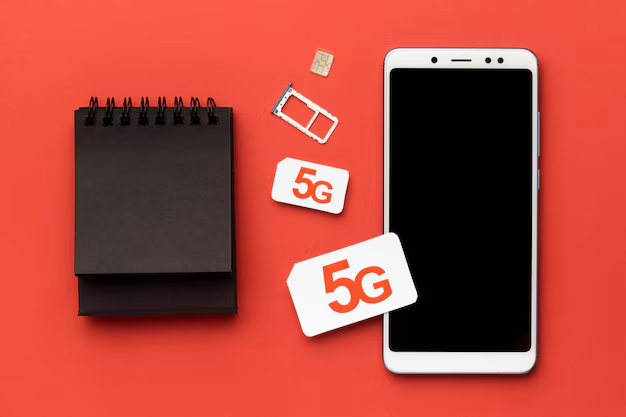The advent of 5G networks is a defining moment in the history of global technology, promising to revolutionize the way we live, work, and interact with the world. As the fifth generation of mobile networks, 5G offers speed, low latency, and high capacity that surpass its predecessors, unlocking unprecedented opportunities for industries and consumers alike. This article explores how 5G networks are set to impact global industries and everyday life, along with a brief look at common questions surrounding its implementation.
Impact on Global Industries
1. Telecommunications and Connectivity The most obvious and direct impact of 5G will be on the telecommunications industry itself. 5G promises ultra-fast download speeds, with theoretical maximum speeds reaching up to 20 gigabits per second. This leap in connectivity is expected to enhance the user experience for mobile internet, streaming, and gaming services. For telecommunications companies, the transition to 5G allows for more efficient use of spectrum, supporting more devices simultaneously and ensuring stronger, more reliable connections even in crowded environments.
2. Healthcare: Telemedicine and Remote Monitoring 5G networks are poised to transform healthcare by enabling real-time data transfer, which is vital for telemedicine and remote monitoring. With the low latency of 5G, medical professionals will be able to conduct remote surgeries with robotic precision, while wearable devices will allow for continuous monitoring of patients’ vitals. The impact of 5G on healthcare could reduce hospital readmissions, improve chronic disease management, and increase access to healthcare services in underserved regions.
3. Manufacturing and Automation The manufacturing sector stands to benefit immensely from the widespread adoption of 5G. With 5G, factories will be able to implement more robust automation and real-time analytics. Through connected sensors and machines, 5G enables highly efficient, data-driven production lines, improving product quality and reducing costs. Furthermore, the low latency and high reliability of 5G make it possible to control robots remotely, allowing for safer and more flexible operations.
4. Smart Cities Smart cities, which utilize digital technology to enhance the quality of life for residents, are heavily reliant on high-speed connectivity. 5G will enable faster communication between smart devices such as traffic lights, street sensors, and autonomous vehicles. This connectivity will lead to better management of traffic flow, improved public safety, more efficient energy consumption, and enhanced services like waste management. 5G will play a key role in creating more sustainable and livable urban spaces.
5. Autonomous Vehicles The automotive industry is undergoing a major transformation, and 5G is a driving force behind the development of autonomous vehicles. Self-driving cars require constant communication with surrounding infrastructure, other vehicles, and the cloud. 5G’s low latency will enable near-instantaneous data exchange, which is crucial for making real-time driving decisions. As a result, 5G will accelerate the deployment of autonomous vehicles and make transportation safer and more efficient.
6. Entertainment and Media 5G will revolutionize the entertainment industry by enabling high-quality streaming of video content in 4K, 8K, and even augmented and virtual reality formats. With 5G’s speed and low latency, consumers can experience immersive media without buffering or lag, providing a more engaging experience for gaming, virtual tourism, and live events. Moreover, content creators can upload large files and streams faster, opening new opportunities for innovation and creativity in digital content production.
7. Retail and E-Commerce Retailers are already leveraging technology to enhance customer experiences, but 5G will take this to the next level. Augmented reality (AR) and virtual reality (VR) will become integral parts of online shopping, allowing consumers to try products virtually in real-time. Retailers will also be able to use 5G to improve inventory management and offer personalized services. Furthermore, the rise of 5G-enabled point-of-sale systems will make transactions faster and more secure.
Impact on Everyday Life
1. Enhanced Mobile Experience On a day-to-day level, the most noticeable effect of 5G will be on mobile phones. The speed of 5G will lead to faster downloads, smoother video calls, and improved mobile gaming experiences. Consumers will be able to enjoy seamless streaming of high-definition content and make high-quality video calls without interruptions, even in crowded areas like airports or stadiums.
2. Internet of Things (IoT) 5G will significantly enhance the capabilities of IoT devices. Smart homes, for example, will become more responsive, with devices like thermostats, lights, and security cameras able to operate in real-time without any lag. The increased bandwidth of 5G will allow for a broader array of IoT devices to be connected simultaneously, enhancing the automation and efficiency of everyday tasks.
3. Smart Wearables Wearable devices such as fitness trackers, smartwatches, and health monitors will become even more powerful with 5G. These devices will be able to collect and transmit data instantaneously, allowing for real-time health monitoring, immediate emergency responses, and more accurate fitness tracking. Consumers will experience more personalized and real-time information about their health and well-being.
Frequently Asked Questions (FAQs)
1. When will 5G networks be available globally? 5G networks are being rolled out in phases, and availability varies by country. Some nations, like South Korea and China, have already begun widespread 5G deployment, while others are expected to follow in the coming years.
2. What are the main differences between 4G and 5G? 5G offers faster speeds, lower latency, and greater connectivity. It supports a much larger number of devices simultaneously and provides more stable connections in high-traffic areas.
3. Will 5G replace Wi-Fi? While 5G will enhance mobile connectivity, Wi-Fi will still play a crucial role in homes and offices for local internet access. Both technologies will coexist, with 5G covering wide-area networks and Wi-Fi being used for smaller, localized networks.
4. Is 5G safe for health? 5G technology uses higher frequency radio waves, but extensive research has shown no conclusive evidence that these frequencies pose a significant health risk. Regulatory bodies worldwide continue to monitor the situation.
5. How will 5G affect job creation? 5G will create millions of jobs globally, especially in sectors like manufacturing, healthcare, telecommunications, and IT. The technology will also spur innovation and entrepreneurship in new industries.
6. Can 5G enable autonomous vehicles? Yes, 5G’s ultra-low latency is crucial for the safe and efficient operation of autonomous vehicles. It allows vehicles to communicate with each other and the infrastructure around them in real time.
7. Will 5G improve internet speeds in rural areas? Yes, 5G has the potential to provide better internet access in rural areas where traditional broadband infrastructure is limited, thanks to its ability to support high-speed wireless communication.
Conclusion
The impact of 5G networks on global industries and everyday life is profound and transformative. From enabling innovations in healthcare and manufacturing to enhancing the entertainment experience, 5G promises to unlock new possibilities across various sectors. While there are still challenges in terms of infrastructure and regulation, the potential benefits are undeniable. As 5G networks continue to expand globally, we can expect to see even greater advances in technology and quality of life.
Key Takeaways
- 5G will revolutionize industries like healthcare, telecommunications, and manufacturing by enabling faster, more efficient systems.
- Consumers will benefit from enhanced mobile experiences, improved IoT connectivity, and better smart device functionalities.
- 5G will create millions of jobs and spur innovation in new technologies and business models.
- While the full implementation of 5G is still ongoing, its potential is already visible in various sectors.

